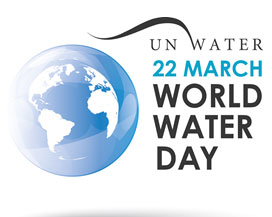Clean energy: for all…
Energy lies at the core of a double challenge: leaving no one behind and protecting the Planet. And clean energy is crucial to its solution.
In a world grappling with climate change, clean energy plays a vital role in reducing emissions, and can also benefit communities lacking access to reliable power sources. Still today, 675 million people live in the dark – 4 in 5 are in Sub-Saharan Africa.
The connection between clean energy, socio-economic development, and environmental sustainability is crucial in addressing issues faced by vulnerable communities worldwide.
For populations without clean energy access, the lack of reliable power hinders education, healthcare, and economic opportunities, and many of these developing regions still rely heavily on polluting fossil fuels for their daily life, perpetuating poverty. If current trends continue, by 2030 one in four people will still use unsafe, unhealthy and inefficient cooking systems, such as burning wood or dung.
Although this situation has been improving, the world is not on track to achieve Sustainable Development Goal 7 (SDG7), which aims to ensure access to affordable, reliable, sustainable and modern energy for all by 2030. The General Assembly will hold a Global Stocktaking on SDG7 in April 2024 to assess progress and recommend solutions.
… and for our planet
But adopting clean energy is integral to the fight against climate change, as well.
A large chunk of the greenhouse gases that blanket the Earth and trap the Sun’s heat are generated through energy production, by burning fossil fuels (oil, coal, and gas) to generate electricity and heat.
The science is clear: to limit climate change, we need to end our reliance on fossil fuels and invest in alternative sources of energy that are clean, accessible, affordable, sustainable, and reliable. Renewable energy sources – which are available in abundance all around us, provided by the sun, wind, water, waste, and heat from the Earth – are replenished by nature and emit little to no greenhouse gases or pollutants into the air.
At the same time, improving energy efficiency is key. Using less energy for the same output – through more efficient technologies in the transport, building, lighting, and appliances sectors for instance: saves money, cuts down on carbon pollution, and helps ensure universal access to sustainable energy for all.
Source: Text: https://www.un.org/en/observances/clean-energy-day Image: Raphael Pouget/UNICEF (Woman cleaning solar panel)

 Accelerating change
Accelerating change
 Water is an essential building block of life. It is more than just essential to quench thirst or protect health; water is vital for creating jobs and supporting economic, social, and human development.
Water is an essential building block of life. It is more than just essential to quench thirst or protect health; water is vital for creating jobs and supporting economic, social, and human development. Every so often a thing comes to pass that is of such astounding importance that we must stand up and recognize i
Every so often a thing comes to pass that is of such astounding importance that we must stand up and recognize i 2017 Theme: “Our oceans, our future”
2017 Theme: “Our oceans, our future” Water is the essential building block of life. But it is more than just essential to quench thirst or protect health; water is vital for creating jobs and supporting economic, social, and human development.
Water is the essential building block of life. But it is more than just essential to quench thirst or protect health; water is vital for creating jobs and supporting economic, social, and human development.